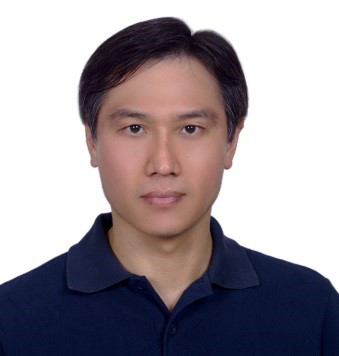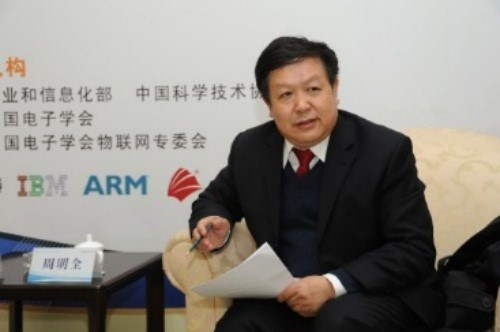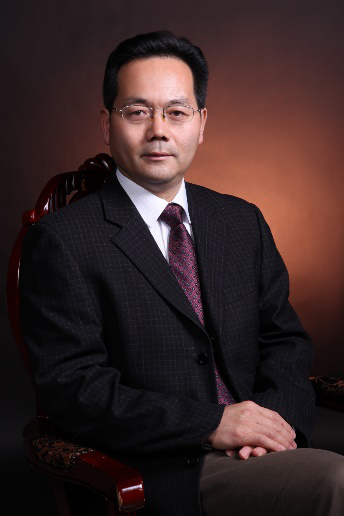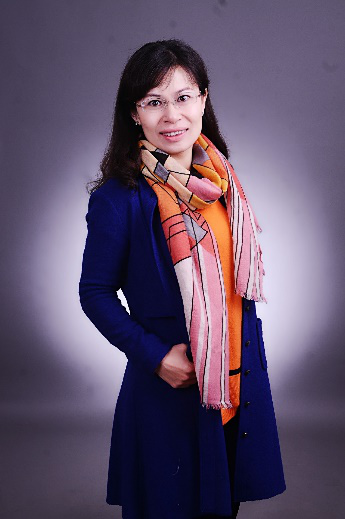2019 Overseas High-Level Talents and Postdoc Positions Available in Smart Learning Institute of Beijing Normal UniversityPublished on:2019-04-26 11:33
Address:
Type:
Salary:
Here we have a fantastic working environment, an international team of cooperative tutors, excellent resources and platforms, attractive wages and international exchange opportunities... We also have unlimited space for academic development and a group of young people who work hard for their dreams. If you dare to think, nothing can’t be realized.
The gate of SLIBNU has already been opened for you. We will spare no effort to ensure that the postdoctoral researchers will work and live happily here! We believe that this will be a journey that can change your lives! Don't hesitate any more and come to join us!
1. Introduction to Smart Learning Institute of Beijing Normal University
Smart Learning Institute of Beijing Normal University (hereinafter referred to as SLIBNU) is a comprehensive experimental platform involving scientific research, technology development and instructional teaching. SLIBNU is established by Beijing Normal University at March 2015 and jointly constructed with Elernity, subsidiary corporation of NetDragon.
Aiming at making full use of advantages and resources of university and enterprise, the Smart Learning Institute of Beijing Normal University explores industry-university-research integration mechanism, focuses on researching the learning patterns in informatized environment, constructing a smart learning environment and platform to support lifelong learning and diverse, individualized and differentiated learning of learners of Digital Generations.
Smart Learning Institute of Beijing Normal University follows the project-based team management and evaluation system, and PI responsibility system to form an efficient governance mechanism with expandable research areas and high-quality team. At present we have Design and Learning Laboratory, Smart City and Learning Environment Laboratory, Open Educational Resources (OER) Laboratory, Educational Robot Engineering Center, ICT Instruction Research Center, International Cooperation Center, Project Incubation Office and Administration Office. It hosts more than 100 full-time and part-time staff, 30 professors and associate professors (including 5 famous international experts). At the same time, through the exchange of resources between schools and enterprises, SLIBNU has established a diverse human resource system and is constantly improving the academic environment and the impact of “internationalization”.
For more information, please follow our WeChat official account (smartlearning_BNU) or visit our website (http://sli.bnu.edu.cn/).
2. Team of Experts

Professor Ronghuai Huang
Co-Dean of Smart Learning Institute of Beijing Normal University, Director of National Engineering Lab for Cyberlearning Intelligent Technology, Director of UNESCO International Rural Educational and Training Centre. Co-Dean Ronghuai Huang mainly engaged in educational informatization, smart learning environments, technology-based innovative teaching and learning modes, etc.
Huang’s courses was awarded as the National Elaborate Courses, National Elaborate Sharing Courses and National Educational and Teaching Achievements; the teaching materials that he compiled won the National Elaborate Teaching Materials; the team led by him won the Outstanding Teaching Team in Beijing and he was awarded Famous Teacher and Outstanding Teacher of Beijing, etc.

Dr. Kinshuk
Director of College of Information, University of North Texas (UNT), Deputy Chair of International Association of Smart Learning Environments (IASLE), General Editor of Smart Learning Environment journal. Kinshuk devotes himself to the research of enhancing new subject forms and constructions to promote adaptive and personalized learning on a global scale. His research interests include smart learning environments, learning analytics, mobile learning, cognitive profiling and interactive technologies.

Professor Jonathan Michael Spector
Professor of Department of Learning Technologies of College of Information, University of North Texas (UNT), former Chairman of Association for Educational Communication & Technology (AECT). His research interests include educational planning & project evaluation, learning evaluation for complex domains, integration of informational technology and teaching, remote education, etc. He also serves as the General Editor of Educational Technology Research and Development (ETRD) journal and edits the third and fourth edition of Handbook of Research for Educational Communications and Technology, the most influential journal in educational technology.

Professor Chee Kit Looi
Professor of National Institute of Education, Nanyang Technological University (NIE/NTU), Singapore, Head of the Center for Scalability, Translation and Commercialization. From 2004 to 2008, he led the creation of the first research center devoted to the study of the sciences of learning in the Asia-Pacific region-- Learning Sciences Lab of Singapore. He served as the Chairman of Asia-Pacific Society for Computers in Education (APSCE) and participated in the launching of The Global Chinese Society for Computers in Education (GCSCE), serving as member of steering committee. He directed and completed many research projects of National Research Foundation (NRF) of Singapore. He is a prolific author in his field, published 200+ papers on top international journals or conferences and the achievements make a difference for teaching practices in Singapore elementary schools.

Professor Chen Nian-Shing
Professor of the Department of Information Management at the National Sun Yat-sen University, Taiwan and the Chairman of Technical Councils of IEEE. He has published over 50 SSCI papers in the last 5 years. He has successfully applied the Special Issues of four SSCI journals, including ET&S、ILE、CALL and ETR&D, which improved the visibility of Taiwan’s E-Learning research achievements. His research interests include online synchronous teaching & learning, seamless integration between traditional paper and digital teaching material, and somatosensory-brain wave integration, which he devotes himself to in the last three years.

Professor Mingquan Zhou
Deputy Dean of Smart Learning Institute of Beijing Normal University. Second Level Professor of Beijing Normal University. At present he is serving as the Director of VR Application Engineering Research Center of MOE, Director of Beijing Key VR Laboratory of Digital Protection for Cultural Heritage, Executive Deputy Chairman of CVRVT, Vice-director of China Society of Image and Graphics (CSIG), Executive Director of China Computer Society (CCF), Chinese Information Processing Society of China(CIPSC), committee member of Software Engineering Steering Committee MOE.

Professor Guangzuo Cui
Professor and Doctoral Supervisor of Beijing Normal University, hosted or participated in several research projects of National Science Fund for Distinguished Young Scholars of China, key National Tenth Five-Year Plan, 863 Plan, and National Social Science Foundation; published 70+ papers and the monograph Teaching Theories and Practices of Thinking Ability. At present he carries out researches on thinking and education, including thinking teaching, math education, innovative capacity cultivation. The achievements obtain good results in campus and social practices of primary and middle schools and are being nationwide promoted.

Professor Yanyan Li
Professor and Doctoral Supervisor of Beijing Normal University. Li is mainly engaged in design and application of learning platform and learning resources based on Web2.0, computer supported collaborative learning, individualized as well as adaptable learning and learning analysis. Professor Li successfully presided over National Natural Science Fund projects, Beijing key laboratory co-construction project, educational reform project and crosswise tasks and participated in national major fundamental research program of 973 project, the major project of attracting capital for colleges and universities science and technology innovation and so on. So far Li has published more than 70 papers in domestic as well as international journals and in international conferences, many of which were indexed on SSCI/SCI and three of them won Outstanding Paper Award. Li published her English monograph Smart Learning Environments and serves as Chair or committee members of several international conference and programs. She is the Executive Editor of Journal of Computers in Education and editorial board member of three international journals.
In addition to the co-advisors listed above, we have senior executives and research fellows from NetDragon. At the same time, we have a group of assistants with rich research experiences include Dr. Tingwen Chang, Dr.Yuan Gao, Dr. Lanqin Zheng, Dr. Guoqing Zhao, and Dr. Shunyu Li.
3. Research Directions
1) Virtual Reality in Education
Research students’ identity perception, reliable environments, and student-device-environment reciprocal rules as well as cognitive process features; Study the design and evaluation of VR classrooms, the design and applications of VR subject education resources, language learning under MUVE and teacher education modes under VR environment.
2) Big Data in Education
Focus on the collection, clear, storage, statistical analysis and visualization of educational big data; Design and development of learning analysis systems based on educational big data; Security, ethic, policy and regulatory issues related to the massive application of educational big data.
3) Knowledge Technology
Subject knowledge Ontology Base of middle and primary school; Construction of knowledge graph; Modeling and diagnosis of students’ subject knowledge and teacher’s knowledge.
4) Cloud Computing in Education
Educational Cloud for Educating and Educational Scientific Research; Disciplinary Cloud Computing Engine; Cloud-based Virtual Experimental Platform and Self-Regulation & Evaluation Cloud Service.
5) Internet of Things in Education
Intelligent Sensor and Digital Laboratory Research, Assist Advanced Cognition of Human, Expand the research & development of integrated smart learning equipment in human’s learning skill and knowledge; The design, implementation and optimizing of mart technologies-based school learning environments (such as classrooms, campus and areas).
6) ICT-Based Teaching and Studying
Research on behavior characteristics of children and adolescents under information technology-supported environments; classroom teaching application demonstration of emerging technologies; Information Technology-Assisted Teacher Professional Learning; Educational Application Evaluation of New Technologies, New Methods and New Products of Smart Education.
4. Requirements
1) Postdoctoral position: have obtained doctorate in top universities from home and abroad with excellent academics, characters and good health, under the age of 35.
High-level talents: have obtained doctorate in top universities from home and abroad, under the age of 45.
2) Be able to work in full-time (in-service staff will not be accepted).
3) With high-profile research outputs in the past 5 years.
4) Have strong ability in studying independently, teamwork, good communication skills, fluent oral and written skills in English.
5. Responsibilities
1) Work full-timely at SLIBNU and be regarded as formal registered staff; undertake research work and tasks assigned by the institute.
2) Complete research work with high-quality achievements independently or collaboratively.
3) Leading teams, working on projects, and participating in work for international communications and cooperation.
6. Remuneration Package
1) Remuneration and welfares are negotiable (including basic salary and allowance subsidies, social security fund and public accumulation fund).
2) Provide competitive performance incentives and matched life allowance based on the position, achievements, and contribution towards the development of the institute.
3) Provide top skilled co-advisors, superior resources and platforms, favorable working and scientific researching environment, opportunities for international communications, open projects and working in a cooperative teams.
7. Application Procedures
1) Applicants shall send resumes of electronic copies (including education background, working experience, published academic papers, attended scientific research program, obtained rewards and individual competencies) and scientific research certificates (electronic copy) to the following e-mail address: smartlearning@bnu.edu.cn.
2) Applicants will be arranged to attend interviews at SLIBNU or join remote interviews. Those who pass the interview will be specifically negotiated for employment.
3) Deadline: December 31st, 2019.
8. Way of Application
Contact: Mr. Kuai
Tel: 010-58807219
Email: smartlearning@bnu.edu.cn
Address: 12F, Block A, Jingshi Technology Building, No. 12 Xueyuan South Road, Haidian District, Beijing, China.
Postcode: 100082
The gate of SLIBNU has already been opened for you. We will spare no effort to ensure that the postdoctoral researchers will work and live happily here! We believe that this will be a journey that can change your lives! Don't hesitate any more and come to join us!
1. Introduction to Smart Learning Institute of Beijing Normal University
Smart Learning Institute of Beijing Normal University (hereinafter referred to as SLIBNU) is a comprehensive experimental platform involving scientific research, technology development and instructional teaching. SLIBNU is established by Beijing Normal University at March 2015 and jointly constructed with Elernity, subsidiary corporation of NetDragon.
Aiming at making full use of advantages and resources of university and enterprise, the Smart Learning Institute of Beijing Normal University explores industry-university-research integration mechanism, focuses on researching the learning patterns in informatized environment, constructing a smart learning environment and platform to support lifelong learning and diverse, individualized and differentiated learning of learners of Digital Generations.
Smart Learning Institute of Beijing Normal University follows the project-based team management and evaluation system, and PI responsibility system to form an efficient governance mechanism with expandable research areas and high-quality team. At present we have Design and Learning Laboratory, Smart City and Learning Environment Laboratory, Open Educational Resources (OER) Laboratory, Educational Robot Engineering Center, ICT Instruction Research Center, International Cooperation Center, Project Incubation Office and Administration Office. It hosts more than 100 full-time and part-time staff, 30 professors and associate professors (including 5 famous international experts). At the same time, through the exchange of resources between schools and enterprises, SLIBNU has established a diverse human resource system and is constantly improving the academic environment and the impact of “internationalization”.
For more information, please follow our WeChat official account (smartlearning_BNU) or visit our website (http://sli.bnu.edu.cn/).
2. Team of Experts

Professor Ronghuai Huang
Co-Dean of Smart Learning Institute of Beijing Normal University, Director of National Engineering Lab for Cyberlearning Intelligent Technology, Director of UNESCO International Rural Educational and Training Centre. Co-Dean Ronghuai Huang mainly engaged in educational informatization, smart learning environments, technology-based innovative teaching and learning modes, etc.
Huang’s courses was awarded as the National Elaborate Courses, National Elaborate Sharing Courses and National Educational and Teaching Achievements; the teaching materials that he compiled won the National Elaborate Teaching Materials; the team led by him won the Outstanding Teaching Team in Beijing and he was awarded Famous Teacher and Outstanding Teacher of Beijing, etc.

Dr. Kinshuk
Director of College of Information, University of North Texas (UNT), Deputy Chair of International Association of Smart Learning Environments (IASLE), General Editor of Smart Learning Environment journal. Kinshuk devotes himself to the research of enhancing new subject forms and constructions to promote adaptive and personalized learning on a global scale. His research interests include smart learning environments, learning analytics, mobile learning, cognitive profiling and interactive technologies.

Professor Jonathan Michael Spector
Professor of Department of Learning Technologies of College of Information, University of North Texas (UNT), former Chairman of Association for Educational Communication & Technology (AECT). His research interests include educational planning & project evaluation, learning evaluation for complex domains, integration of informational technology and teaching, remote education, etc. He also serves as the General Editor of Educational Technology Research and Development (ETRD) journal and edits the third and fourth edition of Handbook of Research for Educational Communications and Technology, the most influential journal in educational technology.

Professor Chee Kit Looi
Professor of National Institute of Education, Nanyang Technological University (NIE/NTU), Singapore, Head of the Center for Scalability, Translation and Commercialization. From 2004 to 2008, he led the creation of the first research center devoted to the study of the sciences of learning in the Asia-Pacific region-- Learning Sciences Lab of Singapore. He served as the Chairman of Asia-Pacific Society for Computers in Education (APSCE) and participated in the launching of The Global Chinese Society for Computers in Education (GCSCE), serving as member of steering committee. He directed and completed many research projects of National Research Foundation (NRF) of Singapore. He is a prolific author in his field, published 200+ papers on top international journals or conferences and the achievements make a difference for teaching practices in Singapore elementary schools.

Professor Chen Nian-Shing
Professor of the Department of Information Management at the National Sun Yat-sen University, Taiwan and the Chairman of Technical Councils of IEEE. He has published over 50 SSCI papers in the last 5 years. He has successfully applied the Special Issues of four SSCI journals, including ET&S、ILE、CALL and ETR&D, which improved the visibility of Taiwan’s E-Learning research achievements. His research interests include online synchronous teaching & learning, seamless integration between traditional paper and digital teaching material, and somatosensory-brain wave integration, which he devotes himself to in the last three years.

Professor Mingquan Zhou
Deputy Dean of Smart Learning Institute of Beijing Normal University. Second Level Professor of Beijing Normal University. At present he is serving as the Director of VR Application Engineering Research Center of MOE, Director of Beijing Key VR Laboratory of Digital Protection for Cultural Heritage, Executive Deputy Chairman of CVRVT, Vice-director of China Society of Image and Graphics (CSIG), Executive Director of China Computer Society (CCF), Chinese Information Processing Society of China(CIPSC), committee member of Software Engineering Steering Committee MOE.

Professor Guangzuo Cui
Professor and Doctoral Supervisor of Beijing Normal University, hosted or participated in several research projects of National Science Fund for Distinguished Young Scholars of China, key National Tenth Five-Year Plan, 863 Plan, and National Social Science Foundation; published 70+ papers and the monograph Teaching Theories and Practices of Thinking Ability. At present he carries out researches on thinking and education, including thinking teaching, math education, innovative capacity cultivation. The achievements obtain good results in campus and social practices of primary and middle schools and are being nationwide promoted.

Professor Yanyan Li
Professor and Doctoral Supervisor of Beijing Normal University. Li is mainly engaged in design and application of learning platform and learning resources based on Web2.0, computer supported collaborative learning, individualized as well as adaptable learning and learning analysis. Professor Li successfully presided over National Natural Science Fund projects, Beijing key laboratory co-construction project, educational reform project and crosswise tasks and participated in national major fundamental research program of 973 project, the major project of attracting capital for colleges and universities science and technology innovation and so on. So far Li has published more than 70 papers in domestic as well as international journals and in international conferences, many of which were indexed on SSCI/SCI and three of them won Outstanding Paper Award. Li published her English monograph Smart Learning Environments and serves as Chair or committee members of several international conference and programs. She is the Executive Editor of Journal of Computers in Education and editorial board member of three international journals.
In addition to the co-advisors listed above, we have senior executives and research fellows from NetDragon. At the same time, we have a group of assistants with rich research experiences include Dr. Tingwen Chang, Dr.Yuan Gao, Dr. Lanqin Zheng, Dr. Guoqing Zhao, and Dr. Shunyu Li.
3. Research Directions
1) Virtual Reality in Education
Research students’ identity perception, reliable environments, and student-device-environment reciprocal rules as well as cognitive process features; Study the design and evaluation of VR classrooms, the design and applications of VR subject education resources, language learning under MUVE and teacher education modes under VR environment.
2) Big Data in Education
Focus on the collection, clear, storage, statistical analysis and visualization of educational big data; Design and development of learning analysis systems based on educational big data; Security, ethic, policy and regulatory issues related to the massive application of educational big data.
3) Knowledge Technology
Subject knowledge Ontology Base of middle and primary school; Construction of knowledge graph; Modeling and diagnosis of students’ subject knowledge and teacher’s knowledge.
4) Cloud Computing in Education
Educational Cloud for Educating and Educational Scientific Research; Disciplinary Cloud Computing Engine; Cloud-based Virtual Experimental Platform and Self-Regulation & Evaluation Cloud Service.
5) Internet of Things in Education
Intelligent Sensor and Digital Laboratory Research, Assist Advanced Cognition of Human, Expand the research & development of integrated smart learning equipment in human’s learning skill and knowledge; The design, implementation and optimizing of mart technologies-based school learning environments (such as classrooms, campus and areas).
6) ICT-Based Teaching and Studying
Research on behavior characteristics of children and adolescents under information technology-supported environments; classroom teaching application demonstration of emerging technologies; Information Technology-Assisted Teacher Professional Learning; Educational Application Evaluation of New Technologies, New Methods and New Products of Smart Education.
4. Requirements
1) Postdoctoral position: have obtained doctorate in top universities from home and abroad with excellent academics, characters and good health, under the age of 35.
High-level talents: have obtained doctorate in top universities from home and abroad, under the age of 45.
2) Be able to work in full-time (in-service staff will not be accepted).
3) With high-profile research outputs in the past 5 years.
4) Have strong ability in studying independently, teamwork, good communication skills, fluent oral and written skills in English.
5. Responsibilities
1) Work full-timely at SLIBNU and be regarded as formal registered staff; undertake research work and tasks assigned by the institute.
2) Complete research work with high-quality achievements independently or collaboratively.
3) Leading teams, working on projects, and participating in work for international communications and cooperation.
6. Remuneration Package
1) Remuneration and welfares are negotiable (including basic salary and allowance subsidies, social security fund and public accumulation fund).
2) Provide competitive performance incentives and matched life allowance based on the position, achievements, and contribution towards the development of the institute.
3) Provide top skilled co-advisors, superior resources and platforms, favorable working and scientific researching environment, opportunities for international communications, open projects and working in a cooperative teams.
7. Application Procedures
1) Applicants shall send resumes of electronic copies (including education background, working experience, published academic papers, attended scientific research program, obtained rewards and individual competencies) and scientific research certificates (electronic copy) to the following e-mail address: smartlearning@bnu.edu.cn.
2) Applicants will be arranged to attend interviews at SLIBNU or join remote interviews. Those who pass the interview will be specifically negotiated for employment.
3) Deadline: December 31st, 2019.
8. Way of Application
Contact: Mr. Kuai
Tel: 010-58807219
Email: smartlearning@bnu.edu.cn
Address: 12F, Block A, Jingshi Technology Building, No. 12 Xueyuan South Road, Haidian District, Beijing, China.
Postcode: 100082
-

弹性上班时间
-

贴心的员工福利水吧
-

健身房、游泳池、桑拿房等设施

